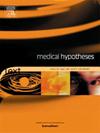Despite significant advances in transplantation medicine, allograft rejection remains a major challenge in clinical practice. The preexistence of alloreactive lymphocytes is a primary cause of allograft rejection. The forthcoming challenges in clinical transplantation will involve the suppression or eradication of allospecific memory T cells. Viral infections and allograft rejection interact in multiple ways that can compromise the survival of transplanted organs. Evidence is currently accumulating on the incorporation of HLA antigens and other host cell plasma membrane molecules into the viral envelope. A consequence of the viral envelope displaying the HLA signature acquired from the plasma membrane of infected cells is that when virions are transmitted to the next host, the newly infected person became exposed to allogeneic molecules stimulating alloimmunity and generating memory to alloantigens. Thus, successive exposure to viral infections throughout life could potentially contribute to the development of alloimmunity and the generation of numerous clones of memory alloreactive lymphocytes. In this paper a novel hypothesis is developed on the potential role and mechanisms of alloresponse induced by human spread of enveloped viruses. As this hypothesis could aid in the knowledge of preexisting alloreactivity, additional research into the intricacies of virion-incorporated host cell proteins is necessary. A deeper understanding of this dynamic interaction will help promote advances in the long-term acceptance of transplants.


